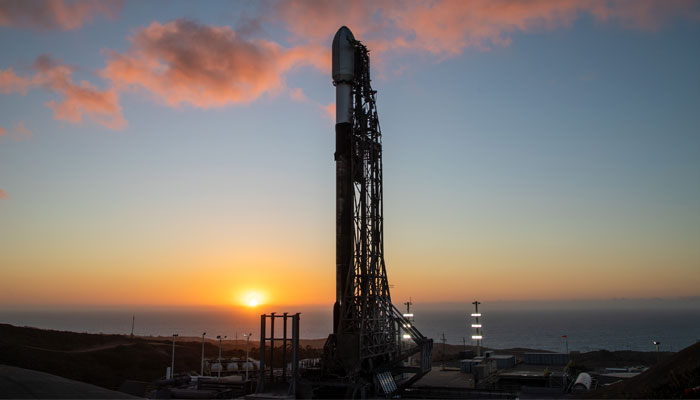South Korea launches first military spy satellite via SpaceX rocket
Satellite launch comes less than two weeks after North Korea successfully put its spy satellite into orbit
December 02, 2023

South Korea has intensified the space race on the peninsula by launching its first military spy satellite on a SpaceX rocket following Pyongyang's launch of its first surveillance satellite last week.
The reconnaissance satellite was carried by a Falcon 9 rocket belonging to Elon Musk's SpaceX and lifted off from the Vandenberg US Space Force Base in California at 10:19 am local time on Friday.
The word "KOREA" was emblazoned across the rocket, and according to South Korea's Yonhap news agency, the satellite successfully reached orbit soon after.
“The Falcon 9 lifted off at 10:19am and sent the reconnaissance satellite into orbit approximately four minutes after the launch,” Yonhap said, citing South Korea’s defence ministry.
Reaching orbit would mean that South Korea has successfully launched its first domestically built spy satellite to monitor North Korea, with plans to launch four more by the end of 2025.
The satellite, set to orbit between 400km and 600km above Earth, can detect objects as small as 30cm.
“Considering resolution and its capacity for Earth observation … our satellite technology ranks in the top five globally,” the defence ministry official said, as quoted by Yonhap.
The launch comes less than two weeks after Pyongyang successfully put its spy satellite into orbit, The Guardian reported.
“Until now, South Korea has relied heavily on US-run spy satellites” when it came to monitoring the North, said Choi Gi-il, professor of military studies at Sangji University.
Choi added that while the South had “succeeded in the launch of a military communications satellite, it has taken much longer for a reconnaissance satellite due to higher technological hurdles."
According to experts, launching a functional reconnaissance satellite into orbit would strengthen North Korea's capacity for obtaining intelligence, especially over South Korea, and supply vital information in the event of a military confrontation.
South Korea has relied on its American allies for satellite intelligence but is planning an array of reconnaissance and military communications satellites as part of a broader push into space, Reuters reported.
After two earlier attempts ended in rocket crashes this year, North Korea used its own Chollima-1 launch vehicle to place the Malligyong-1 reconnaissance satellite in orbit.
Pyongyang has yet to release any imagery from that satellite, and analysts say its full capabilities are unknown.
North Korean state media says the craft has already photographed a range of "target regions" ranging from the White House and Pentagon to US military bases in South Korea, Guam, and Hawaii, and the South Korean capital, Seoul.











